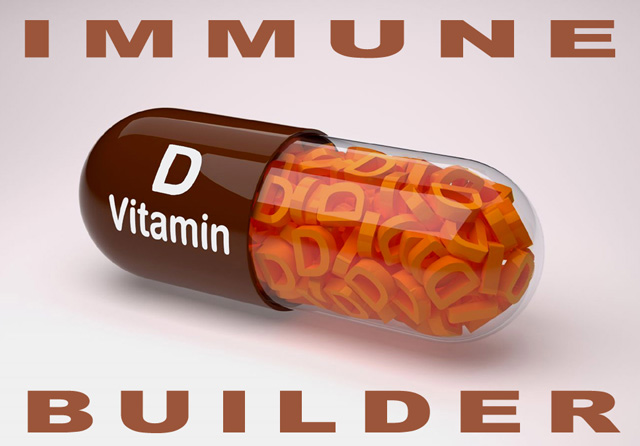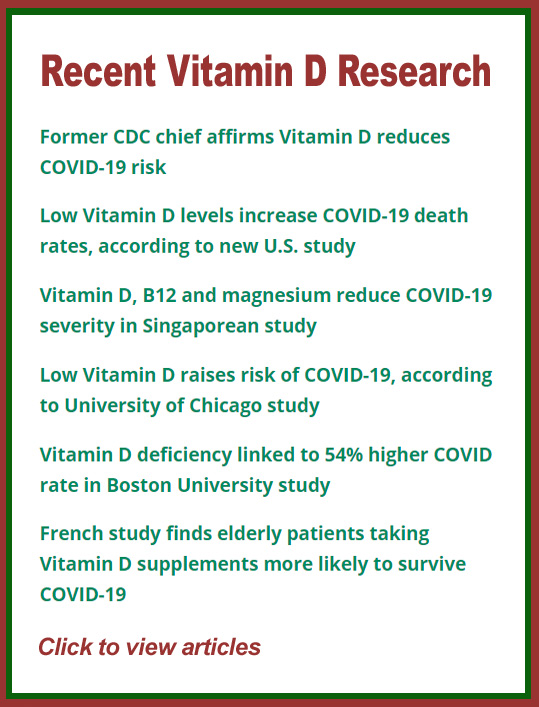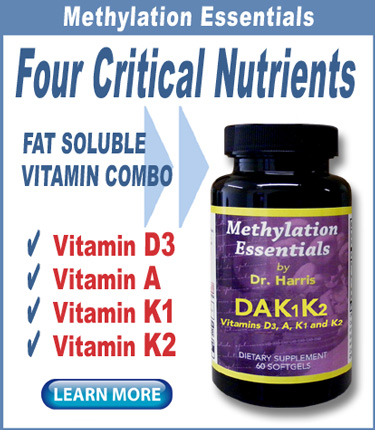Studies pointing to Vitamin D’s ability to fight viruses and respiratory illness go back decades.
After the emergence of COVID-19 studies emerged almost immediately pointing to Vitamin D’s ability to fight that virus too.
Many of the studies were observational, and don’t carry as much weight. However even the studies that are considered higher standard—randomized controlled trials—have still been labeled “only preliminary.”
At a time when a doctor can lose his/her license for portraying Vitamin D in a way not approved by the government, even researchers want to be very careful with any suggestion that a vitamin can “treat, cure or prevent any disease.”
But as the studies continue to pile up—from numerous countries—it is difficult to ignore the evidence. For this reason the sale of Vitamin D supplements have skyrocketed.
Meanwhile, during the last half of March, three more studies were added to the mix:
Study 1: Higher COVID death rate in Black population can be lowered with improved Vitamin D levels
Research published in JAMA Open Network on March 19 retrospectively examined the relationship between Vitamin D levels and likelihood of testing positive for COVID-19.
The study looked at data from over 3,000 patients at UChicago Medicine who had had their Vitamin D levels tested within 14 days before a COVID-19 test.
While levels of 30 ng/ml or more are usually considered “sufficient,” the authors found that Black individuals who had levels of 30 to 40 ng/ml had a 2.64 times higher risk of testing positive for COVID-19 than people with levels of 40 ng/ml or greater.
Study 2: A five-fold increase in Vitamin D intake needed to adequately fight respiratory tract infections
UK researchers reviewing meta-analytical evidence on respiratory tract infections found that low levels of Vitamin D3 correlated with an increased risk of developing several immune-related disorders, including respiratory infection and COVID-19.
The research was published March 25 in Frontiers in Nutrition. The researchers determined that the current UK Vitamin D intake recommendations would need to increase by almost 500% to adequately protect against respiratory tract infections.
The report concludes: “AMR poses a threat to future global health, and the current COVID-19 pandemic is highly damaging to health, societies, and economies. Urgent responses are needed. Supporting the immune system of the population in advance of exposure to infections would reduce the number and severity of infections and reduce use of antibiotics. Vitamin D has multiple roles in supporting the immune system.”
Study 3: Vitamin D supplementation offers protection for groups vulnerable to respiratory tract infections
A study published in The Lancet Diabetes & Endocrinology found that daily supplementing with Vitamin D provided protection against acute respiratory infections when compared to placebo groups.
The researchers based their results on 43 randomized and placebo-controlled studies that were examining the relationship between Vitamin D and respiratory infections of nearly 49,000 participants.
The protection was found with Vitamin D doses between 400–1000 IU for up to 12 months. This amount—which is considered “moderate”—was also found to be a very safe form of preventive treatment.
According to the study abstract, Vitamin D prevents respiratory infections by “boosting a range of innate antiviral responses, while simultaneously dampening down potentially harmful inflammatory responses.”
The study was conducted at Queen Mary University of London, and results were published on March 30, 2021.
Researchers noted the study was a review of respiratory tract infections in general, and results cannot be assumed to apply to COVID-19 specifically: “The relevance of these findings to COVID-19 is not known and requires further investigation.”
Vitamin D is included in a number of popular Optimal Health Systems products. Follow links below for more information:
• Essential DAK1K2
• Exposure Protection Pak
• Optimal Whole Food Vitamin-Mineral
• Optimal Longevi-D
• Opti-Immune-VRL
– – –
Sources: JAMA Open Network, Frontiers in Nutrition, The Lancet Diabetes & Endocrinology.



